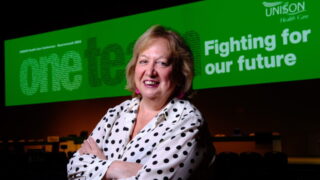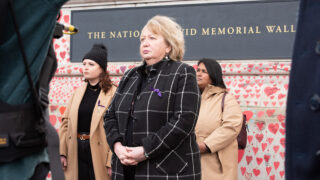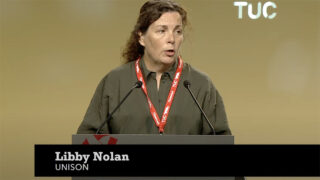For the whole country – the whole world – the past 18 months have been an unimaginably tough and, for many, deeply traumatic time.
While workers in the NHS and social care see death around them as an inevitable part of their jobs, few could have imagined what they would have seen – on the scale they’ve seen it – during the COVID-19 pandemic.
One or two care home residents might be expected to pass away over the course of some months, but during COVID that figure multiplied many times over.
Not only has that been traumatising for the staff who have been caring for these elderly and vulnerable people – in some cases, for years – but that has been compounded by the fact that they’ve often been the only ones able to be with the dying at the end.
The same staff have then had to deal with grieving family and friends who have been kept apart from their loves one at such a difficult time.
So these members can need help, themselves, for their own trauma, as well as guidance on how to help others. UNISON is helping to provide that support.
Helping to build resilience
Teresa Donegan, the union’s head of learning and organising services (LAOS), is keen to talk about what she and her team are doing in that regard.
Grief is a natural process and not a form of mental ill health, but that doesn’t mean that the two cannot and do not overlap – and there are also many examples of workplace stress feeding into both.
Ms Donegan is adamant that it is “the employer’s responsibility if staff become vulnerable”. That’s why the LAOS team is not looking to train reps to become counsellors themselves, but is looking at helping to build “resilience”.
Supporting staff across all sectors, but particularly in social care, one approach saw the union contact Cruse Bereavement Care.
The leading national charity for bereaved people in England, Wales and Northern Ireland, Cruse has run workshops for members working in care homes on dealing with “complex” bereavement.
Ms Donegan says: “UNISON has always provided a member learning programme that provided a wide range of courses around mental health awareness and dealing with stress, aimed at workers who work in challenging roles.
“However, we had never experienced a situation where so many members were dealing with such high levels of trauma and stress themselves as a direct result of doing their job. Care workers were working around the clock supporting residents and their families and the toll on them was terrible.
“We knew we had to do something to support these members to be able to cope with the impact of grief and bereavement on them and we turned to Cruse to help us.”
Reflecting on the grieving process
Ms Donegan says that the response from Cruse was amazing. “They absolutely got what was needed and they were able to tailor their workshops that could be delivered interactively via virtual training to members, enabling them to reflect on the grieving process and gain an understanding of current models that help them understand the impact of grief and bereavement on them.
“We began rolling out these workshops in May 2020 and, since then, have broadened the courses to members in other sectors, from social workers to teaching assistants.
“Not only have hundreds of members been supported through attending the workshops, but we have signposted possibly thousands of members to the excellent support resources that Cruse have available.”
Christine MacKenzie, a bereavement volunteer at Cruse, was one of the trainers who ran webinars for care, health and social care staff, and educators.
She says: “We were happy to support UNISON and provide these virtual workshops for their members – the feedback we have had has been really positive.
“The pandemic has had such a profound impact on people who work in the social care sector – not only for themselves but also those they support and their families. The workshops helped members to reflect on the grieving process and gain an understanding of the current models that help them realise the impact on themselves and the families they are working with.
“We also highlighted ways in which they could take better care of themselves and individuals after a death, and understand how and when to seek further support or advise others.”
Reps can’t fix everything, but…
The workshops are only one aspect of what is available: there are a number of courses, from the likes of the Skills Academy and The Open University, which members can access to help them cope with the difficult situations they are still experiencing.
LAOS team members Kathleen Jowitt and Stevie Milward have, respectively, created a quick guide for social care workers (downloadable here) and gathered together a wealth of resources and guidance that reps can find online.
Ms Jowitt points out that reps can’t “fix everything with one conversation, they can’t help everyone all the time”. But the union is making an important difference.
And in recognition that reps need support and skills to respond to the issues they themselves are facing, LAOS has started working with Speak Up Mental Health, a newly established training organisation formed by former TUC colleagues that already has a proven track record in delivering high-quality mental health training interventions. You can find out about these at speakupmentalhealth.com/.
Ms Donegan says: “We need to see a real cultural change in workplaces. We need to provide the support and knowledge so that collectively we can work with employers to bring about real change in how we all see and respond to mental health at work and across our communities.
“We will shortly have a unique training offer for reps to strive to achieve this cultural change we need.”






